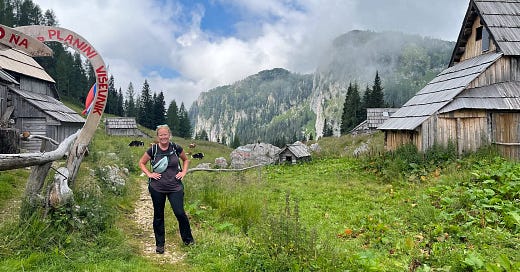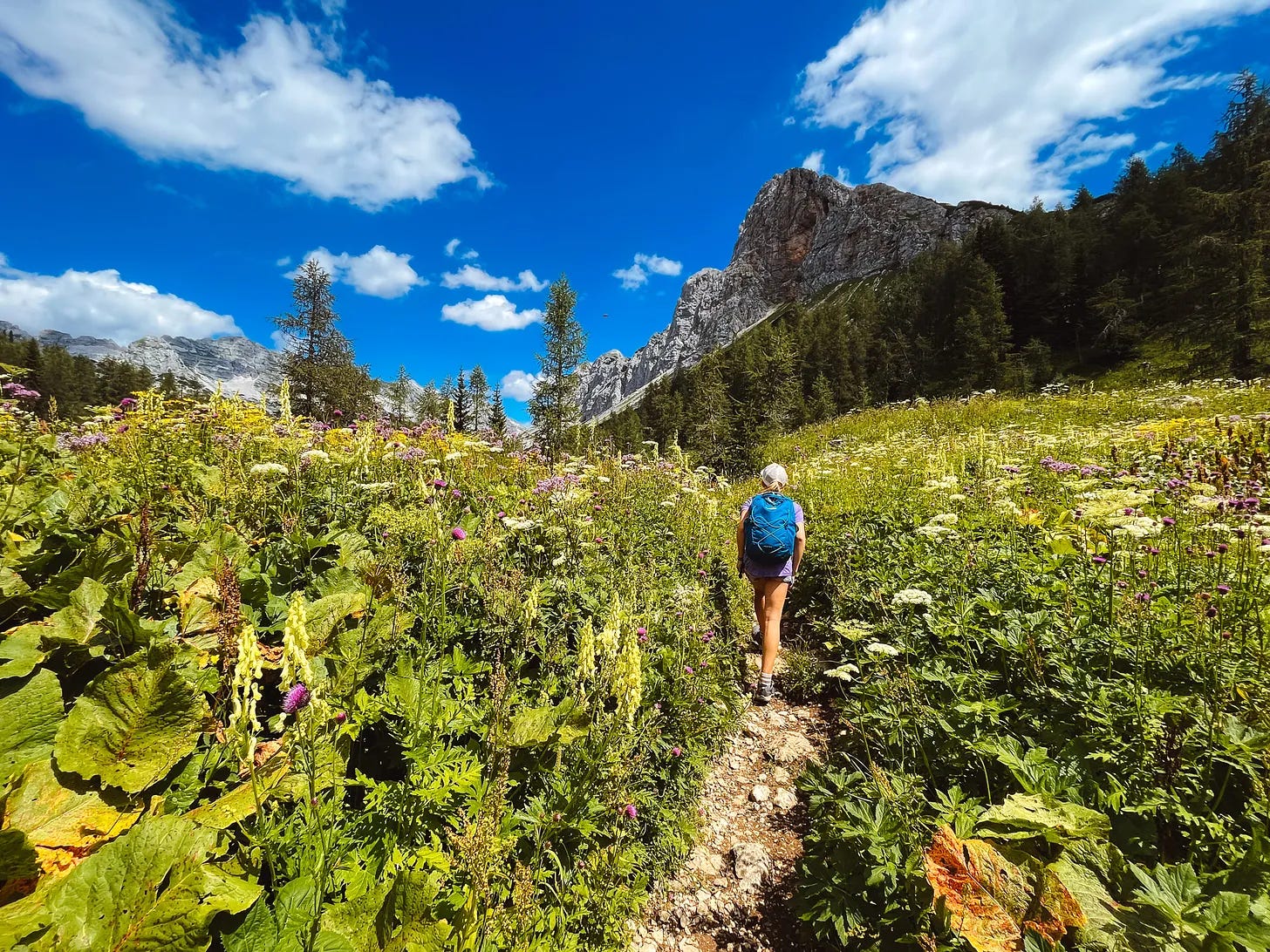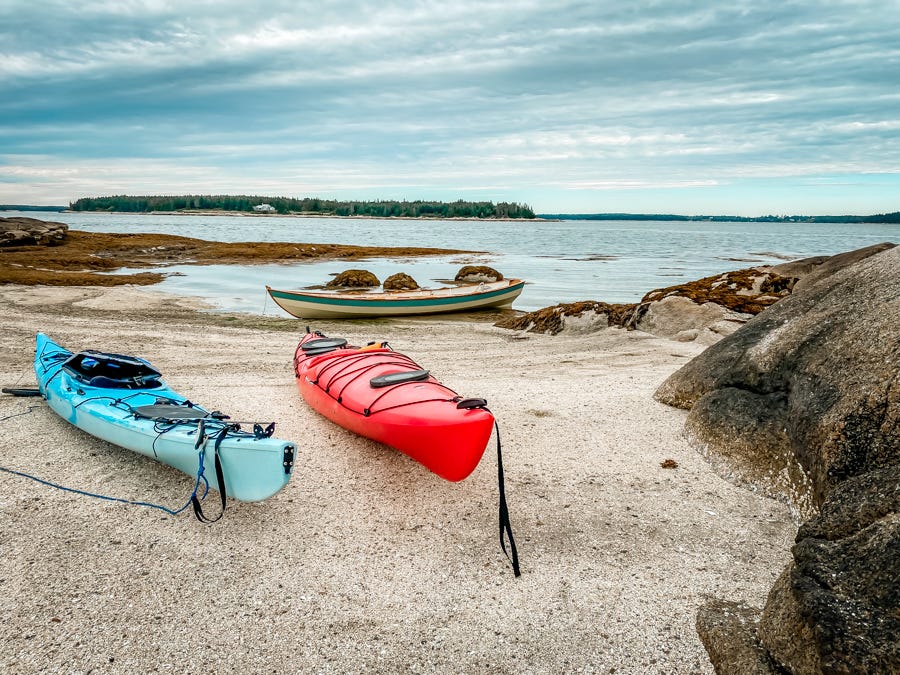At the Shannon airport after my first solo overnight flight, I simply could not understand the customs agent. I was overwelmed, overtired, and I could have sworn he was speaking another language.
In actuality, he almost was. Within a few days in Ireland, I would come to realize that the English I knew was massively different that some of the English spoken in different counties in Ireland - so much so that I could sometimes not understand anything. Luckily this was Ireland, a forgivingand patient country of people.
After clearing customs and waiting for hours for a bus to Galway, I arrived in the city and lugged my two massive bags with everything I needed for a semester in Ireland 30 minutes through the rain.
Yes - it was raining when I arrived in Ireland. It would rain almost non-stop for the next 3 months - something they didn’t really mention in the glossy college study abroad brochures.
If taking my first steps as a toddler was transformative to my life, flying alone, living in Ireland, and traveling for a semester was revolutionary. Taking that first step towards independence in another country opened my mind to a world of potential.
But is there science that backs this up?
Thanks for reading along - please help me out and if you’re enjoying this consider sharing, commenting, or giving me a heart to help me spread the word.
What is Adventure Travel
Before we jump into the benefits of adventure travel, it’s worth pausing and deciding what I mean by adventure travel.
The word ‘adventure’ is overused, and adventure travel has come to mean something different to each person. Is adventure travel going to any far away country? Or does adventure travel need to include an outdoor element like white water rafting? Can adventure travel be a perfectly planned trip? Does adventure travel need an element of the unpredicatable?
I generally subscribe to a wide definition of adventure travel - my basic criteria is that adventure travel has to have some element of risk. This doesn’t mean it needs the high risk of summiting a mountain peak, but it needs to push you somehow out of your comfort zone. For this reason, adventure travel is deeply personal.
Benefits of Adventure Travel
We often hear people talk about the benefits of adventure travel - but let’s dig into the evidence behind this claim:
The Psychological Benefits of Adventure Travel
Boosts Mental Resilience: Studies show that stepping outside your comfort zone increases adaptability and problem-solving skills. A 2021 study in Nature Neuroscience found that novel experiences stimulate neuroplasticity, helping the brain form new connections.
Reduces Stress & Anxiety: Time spent in nature and engaging in physical activity during travel has been linked to lower cortisol levels and improved mood. Research from the University of Exeter found that exposure to new environments and cultures reduces stress and increases overall happiness.
Increases Creativity: Adventure travel forces you to think differently. A study published in Personality and Social Psychology Bulletin found that people who engage in culturally immersive experiences show higher levels of creativity due to exposure to diverse perspectives.
Expert Insights: What Psychologists and Adventurers Say
Much of what we understand about the benefits of travel can be found in studies, but there is a personal side to travel and many of the biggest benefits are seen in stories and personal experiences.
Dr. Adam Galinsky, a social psychologist at Columbia University:
“When you travel, especially to a new place, your brain rewires itself. You see the world differently, and that expands your cognitive flexibility.”Author and traveler Rolf Potts (Vagabonding):
“Travel is not just about seeing new places—it’s about experiencing new mindsets. The more you venture outside your bubble, the more adaptable and open-minded you become.”Adventure traveler and National Geographic Explorer Sarah Marquis:
“Solo travel, especially in wild places, teaches you to trust yourself in a way nothing else can. The confidence you gain from problem-solving in the wilderness translates into every aspect of life.”
The Social and Cultural Impact of Adventure Travel
Adventure travel isn't just about personal benefits—it also fosters global awareness and deeper cultural connections.
Travel Decreases Stereotyping: A 2018 study published in Personality and Social Psychology Bulletin found that people who engage in deep cultural experiences while traveling exhibit lower levels of intergroup bias. Another study in The Journal of Personality and Social Psychology found that individuals who have meaningful interactions with people from different cultures tend to be less prejudiced and more adaptable.
Travel Leads to More Global Thinking: Researchers from Indiana University (2021) found that people who frequently travel develop a more holistic worldview, seeing issues like climate change, inequality, and cultural conflicts from a broader, interconnected perspective.
What About the Negatives of Travel?
When we talk about all the benefits of travel, we sometime skim over the negatives. But there are some negatives to travel and by recognizing these, we can help to mitigate these.
The most common problem is the issue of over-tourism at the most popular destinations. This is a problem in cities across Europe as well as at the US National Parks and other popular destinations. Over-tourism causes strain with locals and a study by The International Journal of Tourism Research revealed that 30% of the economies in popular adventure travel destinations have become highly dependent on tourism, leaving them vulnerable to downturns, cultural commodification, and economic instability if tourism wanes (ahem - COVID).
Travel is also linked to about 8% of global greenhouse gas emissions, with adventure tourism contributing significantly due to activities like flights, off-road driving, and large groups visiting natural sites. Erosion and wilflife disruption is also a problem caused by overuse.
Adventure travel itself is also not without risks for the traveller including increase risk from certain activities and greater exposure to disease. Studies published in The Lancet suggest that adventure travelers are often exposed to higher risks of diseases like malaria, dengue fever, and typhoid, especially when traveling to remote or poorly serviced regions.
How has Adventure Travel Change my Life
After spending the semester in Ireland and traveling around Europe, my entire perspective shifted. A simple first realization is that: travel begets travel. It was like taking that first step made me want to run.
After college, I pursued jobs that got me outside - specifically getting my US Coast Guard license and working onboard sailboats running outdoor adventure trips for kids. Adventure travel through nature gave me a deep curiosity for exploring the world and understanding it.
While it’s true that adventure travel opened my perspective, helped me understand other cultures and taught me patience and resilience, for me, the biggest life change is that it’s made me seek a life that is purposeful. I want my daily life to reflect my priorities.
Choosing a life aligned with my priorities has become central to who I am and choosing to travel is a choice I continue to make over and over again.
Surprise: You Don’t Actually Need to Travel
The True Adventure is Inside Us
Doesn’t this sound cliche? But it’s true - Guess what - you don’t actually need to travel to get all the benefits above. Yes - getting physically out of your comfort zone is helpful to maximize many of the benefits above, but the most profound adventure might actually be within us.
The real transformation comes not from climbing a mountain or crossing a desert but from conquering the internal barriers we set for ourselves: our fears, our limiting beliefs, and our assumptions about the world. The next time you travel, ask yourself: Is the adventure about the place, or is it about who you become along the way?
I truly believe that travel is the best way to for self development, but it is not the only way - developing a travel mindset and a curiosity of the world around you can take place wherever you are.
How to Get Started with Adventure Travel
If you found this article, you like already love adventure travel. If you are ready to embrace travel in a new way, consider subscribing to this newsletter, or pop over to my website for ideas.
Coming Soon - I am so excited to be launching a few new things here on Substack this month, including some more exclusive content, a new travel photo challenge, the launch of my resource library, and a new publication! I’ll have more to share soon!
Have fun out there,
Gretchen
How has travel changed your life? I would love to hear what kick started your love of travel and what it means to you. Let’s chat in the comments.
Travel Trivia Question
Question: Which country is home to the world's largest salt flat, known as Salar de Uyuni?
Travel Tip of the Week
Travel With Reusable Water Bottles
Save money and reduce waste by bringing a reusable water bottle. Some bottles even have built-in filters for clean water.








I've never thought about the science supporting the fact that adventure travel is good for us. I do frequently extol the benefits of travel to others. I particularly love learning about other cultures and history from a different point of view. I'm flying to the Gambia next week where my husband's niece is celebrating her marriage to a Gambian. I'm looking forward to learning how to dance like a Gambian along with many other aspects of the culture.
Awesome read. Once that travel bug gets us it'll never let go. The thrill of seeing a new place never subsides. Thanks for sharing!